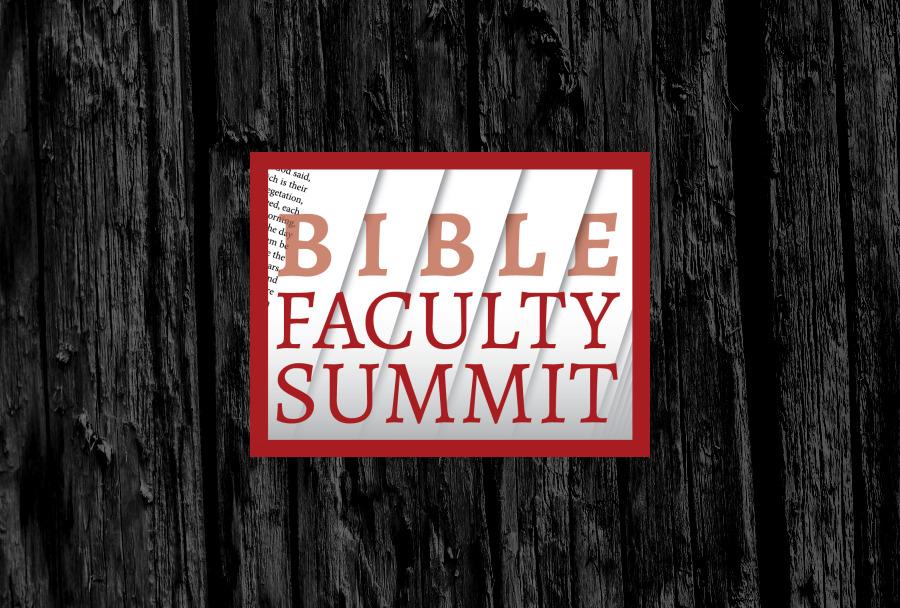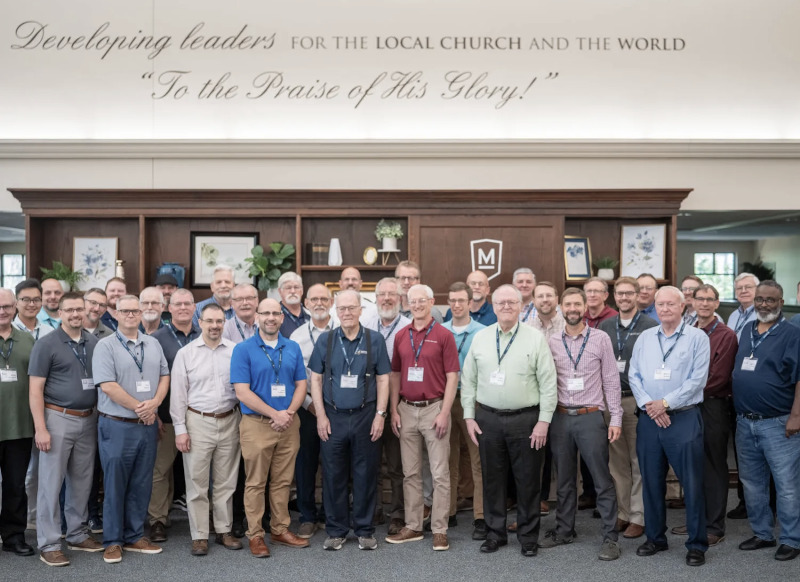Bible Faculty Summit Champions Scholarly Research
Image

A crowd of roughly 40 Biblical and theological educators met at Maranatha Baptist University in Watertown, Wis., from Monday through Wednesday, July 29 to 31, for this year’s edition of the annual Bible Faculty Summit.
Those in attendance represented the following colleges and seminaries:
- Bob Jones University
- Central Baptist Theological Seminary
- Detroit Baptist Theological Seminary
- Faith Baptist Bible College and Theological Seminary
- Foundation Baptist College
- God’s Bible School & College
- Maranatha Baptist University
- National Theological College & Graduate School
- Southern California Seminary
I attended in my role as a representative of The Friends of Israel, but I was not the only one who was not directly tied to an educational institution. There were several men who came on behalf of Baptist Mid-Missions/Bibles International. Additionally, Mark Ward, the current president of the steering committee, is employed by Crossway.
“The Bible Faculty Summit this year had particularly good papers, good discussion and Christ-honoring fellowship,” Ward stated. “I’m grateful to the Lord for this important but quiet institution.”
Through the reading of the papers and the discussion that ensued, it was apparent that there was a spectrum of opinion—within the basic realm of Biblical fundamentalism—inside the room. As the conference dealt with questions literally ranging from Genesis to Revelation, however, much of the teaching truly resonated with me. I was drawn in by the emphasis on the sufficiency of Scripture and the care with which the Biblical text was handled, and found the presentations stimulating and challenging. They also got my mind running back on the track of theological academic research and writing—which is not my everyday focus, yet certainly an arena in which I aim to stay sharp. I was challenged greatly by interacting with everyone at the conference on a personal level, and by observing their dedication to Biblical truth and ministry.

Here, in order, are this year’s speakers and the titles of their papers:
- Cory Marsh (SCS) – “Urgency in the Mundane: Present Living in Light of the Parousia Texts in 1 and 2 Thessalonians”
- Phil Brown (God’s Bible School) – “Integrity, Sin, and Saints: What does it mean to be a person of integrity who is both holy and confesses sin?”
- Mark Ward (Crossway) – “The Relationship of Sinaiticus to the Critical Text of John”
- Andrew Goodwill (MBU) – “The Hills are Alive with the Sound of Prophets: the implications of Deuteronomy 18:15–22 and the Transfiguration accounts to a positive interpretation of 1 Kings 19”
- Brian Collins (BJU Press) – “Premillennial New-Creation Millennialism: A Response to Thomas Schreiner”
- Neal Cushman (BJU) – “Isaiah’s 2-Stage Restoration of Israel”
- Joseph Jo (Ph.D. student, Southeastern Baptist Theological Seminary) – “Romans 9:30–10:4: An Extended Proclamation of Paul’s Soteriological Justification”
- Leroy Hill (SCS) – “Science Over Scripture? The Implications of William Lane Craig’s Approach to Adam’s Historical and Theological Identity”
- Mark Snoeberger (DBTS) – “The New Creation Model and the Believer’s Eternal Expectation”
- Glenn Kerr (Bibles International) – “The Clean Animal Count in Genesis 7:2: A Cultural, not Primarily Exegetical, Question”
- Joel Arnold (Foundation) – “1 Timothy 2:9–15: A Hermeneutical Case Study in Reshaping Texts through Cultural Background”
- Troy Manning (Bibles International) – “Overly Contextualized Bible Translations: The Products of Faulty Understandings of Linguistics, Translation Methodology, Exegesis, and Theology”
- Matt Shrader (CBTS) – “‘A Ministry of Enlarged Culture’: The First American Baptist Seminaries, 1811–1850”
- Bruce Meyer (BJU) – “Shattered by Betrayal: Using Psalm 35 as a Paradigm for Counseling a Survivor of Abuse”
- David Potter (MBU) – “Mihaly Kornya: Peasant Prophet, Transylvanian Baptist Hero”
Marsh, a member of the steering committee, offered the following analysis:
The level of scholarship emerging from Bible Faculty Summit, especially over the last few years, has been both impressive and encouraging. This is a group of credentialed professor-scholars, many of whom also pastor churches, who take the Scriptures to be the unalterable Word of God. In a day when too many scholars feel tempted to compromise their core convictions, BFS remains unashamedly committed to the fundamentals of the Christian faith.
I have reached the point in life where I was familiar with nearly half of the men in this group going into the conference. Still, it was a bit surreal seeing them all in one place! But what struck me most during the time I spent with them is the depth of their scholarship and the range of their abilities. Many of them are proficient in Biblical languages and highly skilled as theological educators. They have given serious attention to their craft, and their examples both motivate and encourage me.
The tagline of the summit is “Educators Promoting Scholarship in Service of the Church.” Next year’s gathering will be held Tuesday to Thursday, July 29 to 31, at Bob Jones University in Greenville, S.C.
Paul Scharf 2023 bio
Paul J. Scharf (M.A., M.Div., Faith Baptist Theological Seminary) is a church ministries representative for The Friends of Israel Gospel Ministry, based in Columbus, WI, and serving in the Midwest. For more information on his ministry, visit sermonaudio.com/pscharf or foi.org/scharf, or email [email protected].
- 685 views
This sounds like a great time for some deeper study. Glad you enjoyed the event.
"The Midrash Detective"
I always appreciate your encouraging comments.
Blessings!!
Church Ministries Representative, serving in the Midwest, for The Friends of Israel Gospel Ministry
Is there any place where the general public can get access to the work of the summit? Do they publish any of the papers?
Paul,
As far as I know, there is not a place for the public to access these papers. You would have to contact BFS and ask about access. I'm sure they would be helpful.
If you go to biblefacultysummit.org you can see a list of currently "Published Papers" from past years.
There was a brief discussion about enhancing efforts to publish this material going forward. I may be writing about that in the future.
Hope that helps!
Church Ministries Representative, serving in the Midwest, for The Friends of Israel Gospel Ministry
Academic integrity and research are very important. One big problem with Fundamentalists seeking academic scholarship and recognition is how Biblical separation applies to academic pursuits. I have rarely seen this issue addressed. Many Fundamentalists are members of ETS, an organization which is reluctant to ask necessary questions to enforce its doctrinal statement. Many in ETS say they agree with inerrancy but then promote beliefs which contradict inerrancy.
Wally Morris
Huntington, IN
Wally, how do you think separation should work in these situations? I’m not challenging you; I would just like to hear your thoughts. I have wrestled with it and am interested in others’ opinions.







Discussion